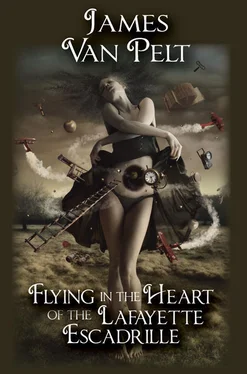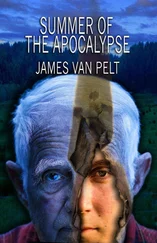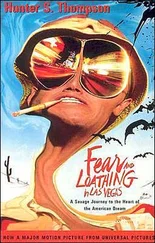Dr. Roam said, “Wolf pups would prove nothing. Even if they’re good, it’s only a matter of time before the mutagen breaks out here too.”
“We don’t know that,” offered Dr. Kette.
“Yes, you do!” thundered Roam. “The women know. We have been here eleven months, and there are twenty-seven women among us. Not one pregnancy. The women know we have no reason to celebrate.”
Martin glanced again at the children. Robyn sat near the door. She held a crumpled drawing. A part of it showed through, a Christmas tree with ornaments and lights. As the argument grew, she twisted the paper tight. Her eyes were red, but she never cried. She looked lost.
In the end, they voted for no official celebration.
Later, while in his zero-G work station, Martin adjusted the magnetic fields holding the ionized gasses in place. The biologists suggested the animals might feel more at home if the moon waxed and waned distinctly. He adjusted the monthly cycle according to their numbers.
When finished, he contemplated the length of the Ark. In the middle, the sun glared, intolerably bright, nearly a third of its daily distance across the sky. Around it, trees pointed toward the axis; cliffs, hills, bluffs, stretches of meadow, streams (water pumped from the lakes at their bottoms to springs at their tops) surrounded the light. An unbroken landscape, a whole one—no horizon separating any one part from another. He found this vision comforting, a perfect visual metaphor for life’s unity, and he couldn’t feel Dr. Roam’s despair, or any of the others. Thinking of the children, Martin wrote invitations to a Christmas party at sunset, Christmas Eve. He set the place, the central-Ark observation area, then sent them. He turned back to his equipment. There was work to be done; he had a party to prepare.
Martin arrived early, an hour before sunset. He took a tube transport that traveled on the Ark’s outside. An elevator carried him and the supplies to a flat, sandy clearing overlooking a small cirque. At the hollow’s bottom a lake reflected darkly. A startled mountain goat scrambled from the water’s edge, tumbling small rocks as it leaped to the top. Most splashed through thin ice into the lake, and the goat disappeared into a boulder field.
He’d pressed the kitchen to make candy canes, and hung them from leafless bushes surrounding the clearing. As he hung the last one, the early guests stepped out of the elevator.
Four-year-old Elise, the youngest child aboard, found the first candy. She held the cane out for everyone to see, and soon the other children busied themselves finding more of the sweets, even the Nyuen twins who were thirteen. Talk was muted. Almost mournful. Martin remembered Dr. Roam’s pronouncement, “We have no reason to celebrate.” The adults clustered around the radiant heaters, warming their hands. Robyn solemnly poked through brittle branches, looking for the last of the candy.
Martin crouched beside her. “Where’s your mom?”
Robyn tucked a cane into her shirt pocket. She looked down, scuffing dirt with the toe of her shoe. “She went to see the wolves. She’s been gone all day. I told her it was Christmas Eve, but she had to work.”
“Ah, that’s too bad.” Martin gave her another candy cane from the extras he kept in a pouch. She added it to her collection.
“Thank you. I’ll save them until later.”
“There’s hot chocolate in the thermoses,” he said.
Robyn sighed and headed for the crowd. Now that the candy had been found, all stood near the heaters.
Hilliert, an older biologist, called his son, Brad. “We really have to go, Martin. This was nice of you, but I don’t think we’re in the spirit.” Other scientists nodded their heads. “It’s cold, and we ought to get the kids home.”
Martin glanced at the sun. It had reached the western wall and begun its dimming cycle. Chill stung his cheeks. “I have a surprise, but we have to wait a few minutes. There’s a thermos with hot chocolate that’s mostly rum in my bag over there, if you want to break that out.”
Hilliert raised his eyebrows and put his hand on his son’s head. “We’ll stay a bit longer, Brad. Maybe we could sing a carol.”
Gradually the sun faded out. Long shadows became less and less distinct, and soon the only light came from the heaters glowing orange in the clearing’s middle. Martin stood behind the circle of parents and children, hands thrust deep into his pockets. Robyn tucked her hands into her armpits and didn’t join the singing. They finished two verses of “Good King Wenceslas” before someone said, “It’s pretty darned dark out here, Martin. Where’s the moon?”
He checked his wrist monitor. A counter clicked to zero. To the east, a point of red light appeared. “What is that?” the same voice asked.
Martin turned. At the west end, a green light flickered on. The scientists and their children turned from the heaters and looked up. The first two lights floated quickly to the center of the sky to stop a few degrees apart like a red and green star. Then new lights appeared at each end, a blue one to the east, and an orange to the west. Soon, a line of colored points reached from end to end, much smaller than the moon or sun, not nearly as bright. Martin barely made out his own hands in the diffuse light, and then, following the program he designed, they began to pulse individually from bright to dark and back again.
The elevator door opened, its white light silhouetting Dr. Kette as she stepped out. Robyn cried out, “Mom, look. Christmas lights!” The door closed, and only the colored lights illuminated the world.
A hand touched his leg. “Is that you, Martin?” Robyn said.
“Yes.”
“Mommy came. She came to your party.”
Vaguely Martin could make out Dr. Kette standing beside him; he mostly saw the colors in her eyes as she looked up.
“This is lovely, Martin.”
They stood for a long time. Behind them one of the kids said, “Let’s sing ‘Silent Night,” and they did; their voices filled the clearing.
“Did you see the wolves?” asked Martin.
“Yes,” said Dr. Kette. She held her daughter’s hand. Their breath steamed in the frigid air. “The mother whelped,” she said. “Four perfect pups. They were mutagen free.”
Martin couldn’t tell if she were crying.
In the darkness, in the sky beyond, he saw glitters like stars, and realized the icy ponds and streams on the roof of the world reflected the display. It was an effect he’d never seen. The moon didn’t reflect this way. In the day the sun revealed land and vegetation, but in this light, there were sparkles, red ones and green, blue and orange. Multicolored tinsel strings; long, glass blue lines shading into the orange of frozen creeks; red fog rising into green, rising into blue; green snowy meadows blushing red then yellow; orange mountain ridges transformed; star glisters blinking everywhere—a thousand stars over Bethlehem—shards of Christmas light, changing in the changing night.
The wolves were born whole.
He’d never seen the Ark so beautiful.
Our dream is your dream
—Burger Land advertisement
Idon’t trust my dreams anymore; I don’t believe they’re mine. A busy lunch with customers lined up outside the door and me sliding my hip down the aluminum prep counter’s rounded edge, bagging burgers and fries, grabbing drinks and pushing them out, that’s real. I can trust a lunch rush but not these dreams. Not the stuff inside my head.
Lunch is over. Two o’clock to three-thirty. Orders will pick up after this until we’re into the dinner crowd. Of course, I’ll be home. That’s Howard Fisk’s shift. I’m sitting in back by the newly delivered produce talking to VJ. The green smell from hundreds of heads of freshly cut lettuce overpowers the old burger grease and detergent odors. He’s sipping coffee that he sweetened with half a dozen packs of sugar. I offered to pay for it. As always, he said, “Put it on the Visa,” pulled from his frayed overcoat a card that’s held together with masking tape, and put it on the table between us. I’m listening to the orders through my earphone in case they need me up front: “Ten Bigs down, please,” says someone. The reception is tinny; voices indistinguishable. “Four with cheese.” Someone else says, “Six cokes, two diet, one no ice.” A long pause. The dead air hisses quietly. Then, “Carter’s a hog.” I grimace. Seven employees have transmitters. Four of them come from Lincoln High where I taught history last year. I can’t tell who said it.
Читать дальше










